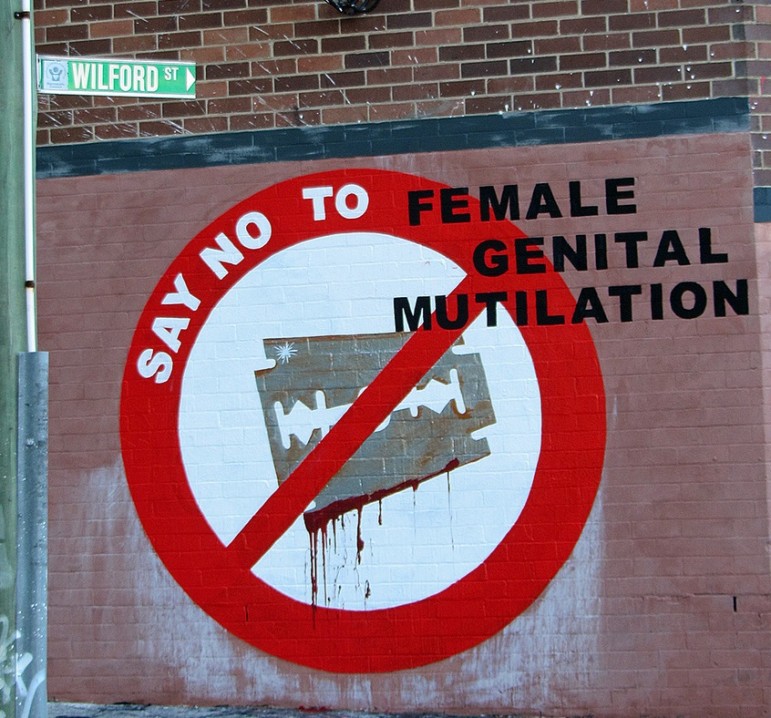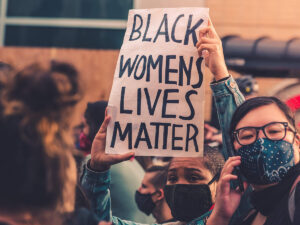
February 4, 2016; New York Times
While support for female genital mutilation, also known as female genital cutting and female circumcision (FGM/C) has been declining throughout the African and Asian countries where it has been concentrated, the practice itself appears to still be on the rise, according to a new study.
Last week, UNICEF released the most comprehensive study yet on FGM/C, providing updated information on practicing countries and gleaning new information on countries, like Indonesia, where the number of women and girls being cut had apparently been underestimated.
The report highlights dramatic shifts in countries like Egypt, where rates of FGM/C fell from 97 percent of all females ages 15–19 to 70 percent. Burkina Faso and Liberia, too, showed significant declines. The study also provides data from countries where previous data were unavailable, such as Iran and Iraq. However, while rates may be on a steady decline throughout the world, the formal addition of Indonesia to the list of countries practicing FGM/C provides a telling look into the world’s most populous Muslim-majority country.
To officials and activists following the rates of FGM/C, Indonesia’s inclusion on the list is not a surprise. It’s the extent of the practice that is revelatory. Based on the country’s own survey data from 2013, the United Nations Children’s Fund estimates that 60 million women and girls have undergone FGM/C. This was the first time Indonesia attempted to officially collect data on the practice.
Sign up for our free newsletters
Subscribe to NPQ's newsletters to have our top stories delivered directly to your inbox.
By signing up, you agree to our privacy policy and terms of use, and to receive messages from NPQ and our partners.
“We knew the practice existed, but we didn’t have a sense of the scope,” said Claudia Cappa, a statistics specialist for UNICEF.
While there are certainly more extreme cases of FGM/C wherein the female clitoris is removed or the vulva sewn shut, the official description in Indonesia describes the procedure as “an act of scratching the skin that covers the front of the clitoris without injuring the clitoris.” This broad definition includes symbolic rituals with no actual cutting.
Over the past several years, activists have charged the government with creating legal boundaries and barriers to the practice. Nevertheless, despite a 2006 law that banned it, Indonesian law has been unable to eliminate FGM/C as a religious practice. (For some, female circumcision is part of an interpretation of Islamic tradition where it’s considered necessary to purify and cleanse a woman before she can be married.) In opposition to the Ministry of Health’s 2006 document, the Indonesian Ulema Council, the top Muslim clerical body, issued a non-binding religious law, or fatwa, stating that FGM/C could and should be performed as long as no pain was exacted. Feeling pressure from Muslim clerics, the Ministry of Health issued a new document in 2010 that laid the groundwork for providing regulations for safer performance of FGM/C by licensed medical workers. Working within the government, anti-cutting activists passed a 2014 resolution that repealed the 2010 safer cutting regulations.
Activists have stated their concerns that, even in the context of limiting risks, authorizing medical personnel to perform the procedure is a way to legitimize the practice. “We are very concerned with medicalization,” said Francesca Moneti, a child protection specialist with UNICEF. “Medical personnel are looked up to and are seen as knowing what’s good for your girl.”
Cutting in all forms—symbolic, and those with more serious long-term consequences—continues. Because the 2014 resolution offers no consequences for performing FGM/C, and is without religious backing, the law offers little more than a stern warning. Until the social acceptability of FGM/C changes and personal views on the subject are made public, cutting will continue placing young women at risk.—Stacey Burton Alcocer













